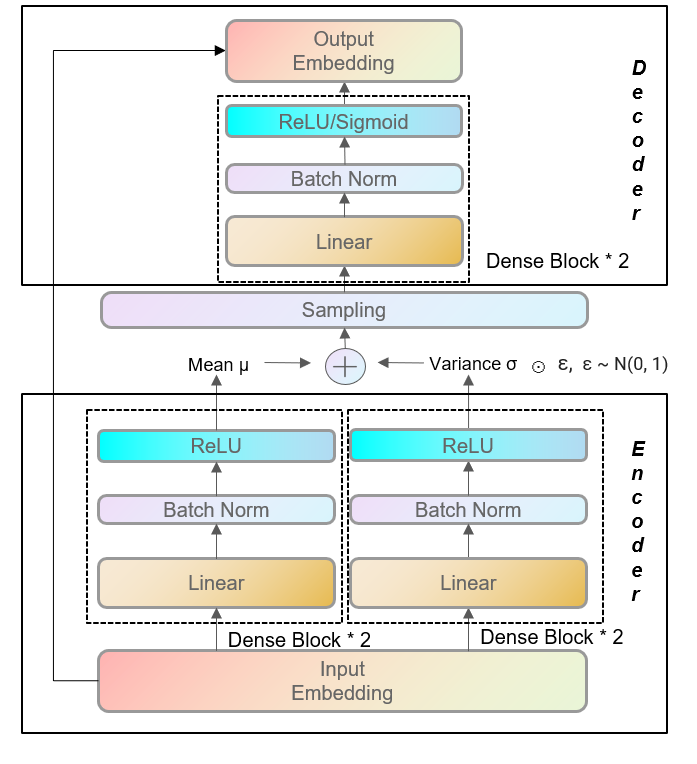Variational Autoencoder for Anti-Cancer Drug Response Prediction
Cancer is a primary cause of human death, but discovering drugs and tailoring cancer therapies are expensive and time-consuming. We seek to facilitate the discovery of new drugs and treatment strategies for cancer using variational autoencoders (VAEs) and multi-layer perceptrons (MLPs) to predict anti-cancer drug responses. Our model takes as input gene expression data of cancer cell lines and anti-cancer drug molecular data and encodes these data with our {\sc {GeneVae}} model, which is an ordinary VAE model, and a rectified junction tree variational autoencoder ({\sc JTVae}) model, respectively. A multi-layer perceptron processes these encoded features to produce a final prediction. Our tests show our system attains a high average coefficient of determination ($R^{2} = 0.83$) in predicting drug responses for breast cancer cell lines and an average $R^{2} = 0.845$ for pan-cancer cell lines. Additionally, we show that our model can generates effective drug compounds not previously used for specific cancer cell lines.
PDF Abstract

